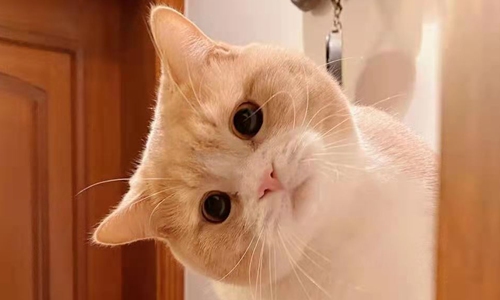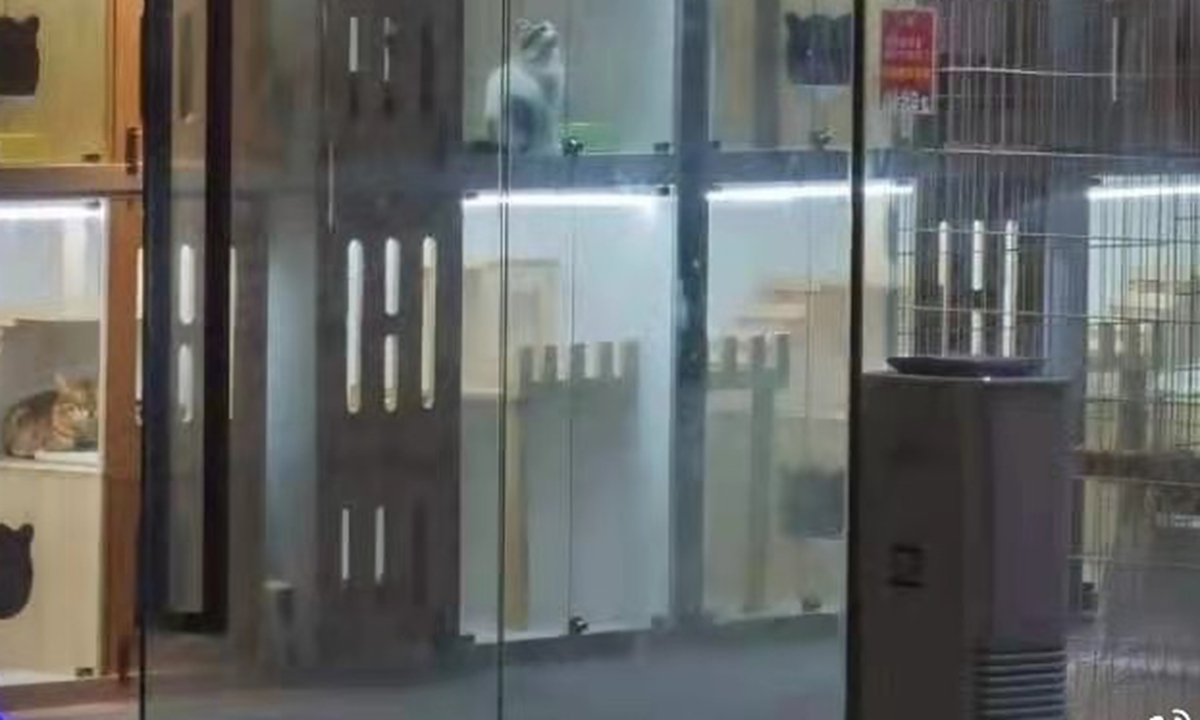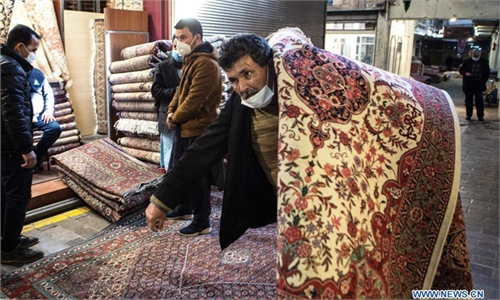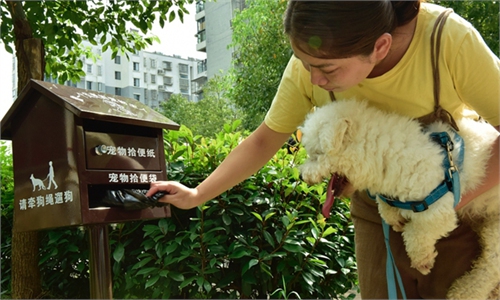ARTS / CULTURE & LEISURE
Chinese netizens call for end to animal exploitation after pet shop opens ‘kitten-sharing service’

A photo of a British shorthair. Photo: Weibo
"Borrow a kitten to keep you company for 9.9 yuan [$1.50]," a slogan on a pet shop's commercial board in Chengdu, Southwest China's Sichuan Province, has made this seemingly ordinary shop the center of public attention as it provides an arguably jaw-dropping service: renting out cats in what is being called a "-kitten-sharing-" service.
The "items-to-rent" are 10 1-year-old British shorthairs. As one of the most popular breed in China, these lovely animals were helping the shop turn a pretty penny as all 10 have been lent out as of Friday, according to a media reporter who covertly visited the shop.
In addition to the "standard fee" of 9.9 yuan, "cat lovers" who are interested in the service also need to pay a deposit ranging from 1,200 yuan to more than 10,000 yuan according to cat breed. Just like renting a home, renters need to provide their ID, sign a contract and provide a photo of their living space to show it is pet-friendly.
"The photo does absolutely nothing since people can do a thorough cleaning to fake the situation. The 'person' is important. I'd only sell my pets when I had some sense about the client. There are many people obsessed with cute cats, but some just want to take advantage of them, not take care of them," Gao, a 32-year-old pet shop owner, told the Global Times, explaining why he objects to the pet shop's rental policy.

A photo of cats in Chengdu's pet shop. Photo: Weibo
Some netizens were agitated soon after the news of the pet shop's unusual service began to spread. Some pointed out the potential health risks such as suicidal behavior it poses to animals as it could cause them stress or lead to depression to frequently be moved around.
Some others used the occasion to protest against the exploitation of animals' lovable nature, calling for people to stop taking advantage of them for financial purposes.
"I first noticed this in 2014. These places were ripping off customers with pricy drinks because they allow people to play with cats - actually not play with them, rubbing them, wake them up while they were sleeping, pinch the soft pads on their paws… should animals be treated as toys or accessories?" Wang Xuening, a strong anti-cat coffee shop advocate, told the Global Times on Monday.
In addition to Wang's stance against the objectification of animals, there are people who see human-pet interaction as important but nevertheless sometimes easily turned into something more patronizing.
According to Sun, an expert with the China Animal Health and Food Safety Alliance, in Western countries pets are commonly considered a significant element in projects such as helping autistic children and improving people's mental health. However, improving people's welfare needs to be done under rigorous ethic and morality limitations and should be used conservatively.
"It takes them almost two weeks to become familiar with a new environment if they have to be relocated frequently. If you really want to put them in such a spot, make sure to keep them company more. That's the least you can do," said Gao.
According to media reports on Wednesday, the shop has closed and its controversial kitten-sharing service advertisement has been removed.



